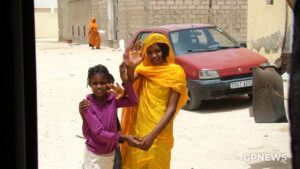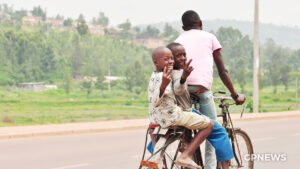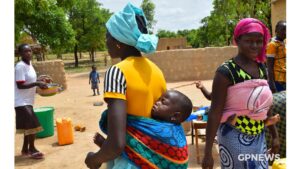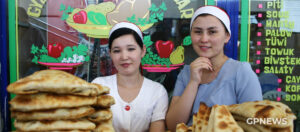[No. 216 / Syria Refugee Crisis Report (2)]
Refugees heading for Europe
It publishes an article by an on-site journalist on the Syrian refugee crisis, which is considered the starting point for a full-fledged refugee issue today. Simeon Kim, a guest reporter in the newspaper, helped Arab refugees who came to Europe from Syria and Vienna, Austria, and is now serving refugees in Jordan to let the world know their reality. <Editor>
With a new starting point
“The moment I saw the child’s body, my body seemed to freeze. It was shocking and sad…But I couldn’t stay blank. I pressed the shutter of the camera to let people hear his silent scream. The only thing I could do for my child was to let the world know about this tragedy with pictures.”
Niloufer Demir, who was stationed in the southern Turkish resort island of Bodrum, is a female photographer from the Turkish media company DHA. She witnesses the tragedy of the Kurdi family at around 6 a.m. on Sept. 2, 2015, when she visits the beach to cover footage of Pakistani refugees heading to the Greek island.
Syria’s three-year-old Kurd Aylan Kurdi left the Aegean Sea in a rubber boat following his parents who were on their way to Europe to avoid the civil war. Unfortunately, the boat overturned five minutes after departure, and Kurdi was found dead with his mother and five-year-old brother on the beach in the Turkish boardroom.
A photograph of Kurdi’s body taken by Demir shocked the world and shook the conscience of adults who had been cold toward refugees. A number of European countries that had refused to allow the influx of refugees have turned into a policy of accepting them.
Refugees and Dublin Regulation
A refugee is “someone who is unable or unwilling to return to their country of origin owing to a well-founded fear of being persecuted for reasons of race, religion, nationality, membership of a particular social group, or political opinion”[1]. Based on the above international convention established in 1951, they can be classified as war refugees, political refugees, religious refugees and climate refugees.
Currently, all refugees around the world are under the jurisdiction of the UNHCR. The UNHCR protects, rescues and helps refugees and retake or resettle them at the request of governments or the United Nations.
The European Union signed the Dublin Regulation in 1990 to prevent so-called “asylum shopping” activities in which refugees choose their favorite country after seeking asylum in several countries. Accordingly, countries that have been asked by refugees to seek asylum must accept the application and conduct a screening process for refugees to fulfill their responsibility for protecting them. But countries close to Africa and the Middle East, which are highly likely to have refugees, like Greece and Italy, have put up the burden of accepting them. The Syrian civil war, which broke out in 2011, has amplified the limits of such a Dublin Regulation and caused conflicts among European Union nations over accepting refugees. With its poor economy coupled with threats of terrorism, Greece and other southern European countries have blocked the influx of refugees from their borders and deliberately avoided fingerprinting.
Nevertheless, the smuggling parade that risked the lives of Syrian and other Middle Eastern refugees trying to go to Europe continued endlessly. They crossed the Aegean Sea by rubber boats off Turkey’s western coast through illegal intermediation by brokers, paying 50 to 100 times more than the cost of a ferry to go to Lesbos or Kos, the southernmost island of Greece, as well as the start of European Union territory.
On August 24, 2015, a week before the Kurdi incident, the German government declared that all Syrian refugees could stay in Germany regardless of which country they entered Europe through. It added that it would not require asylum seekers from Syria to fill out documents asking which countries in Europe first placed them. It was a surprise move that unprecedentedly nullified the Dublin Regulation.
Since the declaration, a large number of refugees from Afghanistan or Iraq, as well as from Syria, have come to as many as 1.32 million in 2015 in the European Union. The number of asylum seekers in 2014 is 630,000 and this is double that of 2014. Among them, 890,000 people applied for refugee status in Germany, accounting for 70 percent of the total. Even this, however, only counts the number that started screening among registered refugees who entered Germany in 2015.
The number of asylum seekers in the European Union also reached 1.26 million in 2016, but the number would drop to 710,000 in 2017 under an agreement reached between the European Union and the Turkish government.
Upon arrival in Europe, refugees register as refugees in the country of entry and then go through the screening process of the country to acquire refugee status. If the reason for leaving the country falls under the category of refugee recognition and the statement is credible, the asylum seeker is recognized as a refugee, and various welfare benefits are given each month along with living expenses. In Austria, 1,800 euros (about 2.33 million won) will be provided per four-person household each month, where they will get a home and start living independently.
On the other hand, if refugee status is rejected, people who have previously been denied refugee applications were given several opportunities to appeal in the past, but in Germany and Austria, the refugee applicants are now forced to return to their home countries without opportunity to appeal due to saturation of refugee applicants.
Assimilation and Severance, Harmony and Isolation
For now, most of the Syrian refugees who have gone to Europe have been recognized as refugees. Children of refugees who followed their parents around 2015 and went to Europe as a teenager are now adjusting to European society by going to college or getting a job after high school. Young children are more adaptable than they are, so they have a school life that is no different from local children.
The difficulties that Syrian refugees face in adapting to Europe are concentrated in their parents’ generation rather than their children. For parents in their late 30s or over 40s, it is more difficult than anything else to overcome the language barrier of German and Austrian languages. And the characteristics of Arab refugees from the Middle East – Muslims who believe in Islam – could hamper their harmony with Europeans based on Christian culture.
The generational conflict between children who are quickly permeating European society amid active social interaction with their peers and their parents concerned about them is manifested in various aspects within refugee families. In the eyes of parents who want to adhere to Islamic religious sentiments and culture as Arabs, children who consider assimilating into advanced European societies as an opportunity to live and actively pursue Europeanization seem to be disapproving. Therefore, parents’ generation experience conflicts and antagonism with their children in many areas, including their children’s short clothes, their promiscuous relationship, and their waning faith.
In such an environment, the generation of refugee parents seeks to strengthen their presence as an independent self for survival in an unfamiliar social environment. It begins with an effort to establish the religious identity of Islam.
Turkish immigrants, who have entered Europe before the 21st century and are now a clear player in European society, have a temporary mosque in their neighborhoods for their religious activities – a place of prayer for renting ordinary shops and houses, rather than a mosque in its own or in the form of Islam. Using these prayers of the Turks, Arab refugees appease religious nostalgia as Muslims and strengthen their faith. Just as churches in Germany and Austria offer German language courses for refugees and serve them, the temporary mosque tends to open Arabic language education for Arab refugee children.
Opportunity and Crisis
Arab countries in the Middle East are rocky lands for Christians who believe that salvation and eternal life are only in Jesus Christ. On the other hand, religious activity is free in Europe, so it is possible to have religious dialogue with Muslims. Thus, Christians were given a good chance to share the gospel and love to the poor-hearted Arab refugees who risked their lives to Europe in search of freedom and peace.
Unfortunately, however, Arab missionaries were rare in Europe around 2015 when Syrian refugees reached their peak in large numbers. There was no intermediate language to connect the refugees with the Europeans. For that reason, I, who had previously served in Syria, also moved to Austria to serve refugees from Syria and Iraq.
But now that many Syrian refugees are able to speak local languages, Christians and churches in Europe and Korean diaspora churches have more opportunities to share the gospel to refugees.
A large number of Muslim refugees from Arab countries have entered Europe, which is suffering from falling birth rates. Arab refugees are expected to have more and more children in order to continue their family in a new land. Of course, welfare benefits in northwestern Europe, which offer world-class benefits in terms of child rearing and education, may also be a big reason. It is natural to hear voices of concern that Europe may soon become Islamic. The advance of Islamic fundamentalists and the threat of violence and terrorism by them are also latent. Christian views on Europe’s future, which has been seen only as a beautiful tourist destination, are not peaceful.
In the past, it was hard to think that European Christians would go to the Middle East and preach the gospel to Muslims unless they were missionaries. Muslims in the Middle East, now at the end of the world, came to Europe in the name of refugees. The people at the end of the earth came near as the neighbor. This phenomenon can only be described as God’s work to save everyone.
There is currently a Muslim enclave in Europe, called “No Go Zone,” where state power is not accessible. This ghetto was never achieved by Islamic fundamentalists who actively engaged in missionary work and took over the whole region. We must remember that the rise of Muslims in their neighborhoods began when locals left their neighborhoods one by one. As we abandoned the opportunity to approach ourselves as friends of our neighbors, the area naturally became a Muslim neighborhood.
Massive influx of Arab Muslims from Europe, including Syria… Before asking ‘Is it a chance? or Is it a crisis?’, if you are a Christian, you should follow the word of the Lord, “Go and do likewise. (Nuke10:37)” Gone opportunities often come back in the name of crisis. <to be continued> [gnpnews]
Simeon Kim, a guest reporter
In the fall of 2015, I covered along a 3,000-kilometer line of refugees from Turkey to Greece-Macedonia-Serbia-Croatia-Slovenia-Austria-Germany with Jungdeok Lee photo-journalist and producer Seo-woo Choi (CGN).
<Copyright ⓒ gnpnews>
Contact: gnpnews@gnmedia.org





